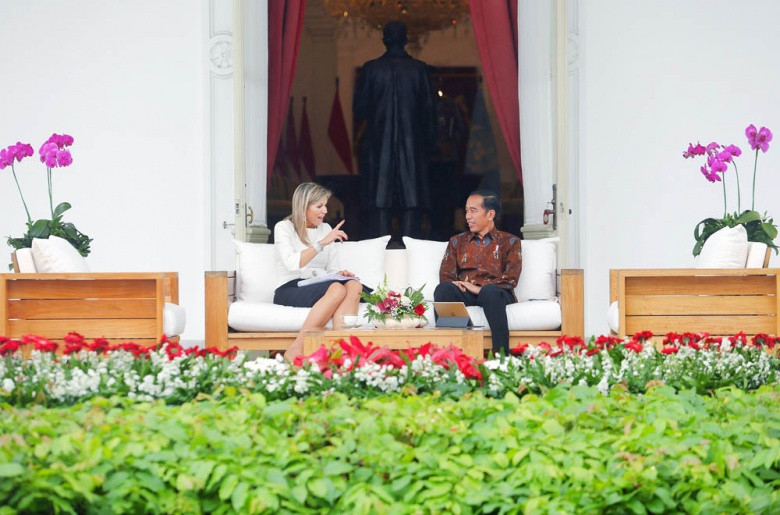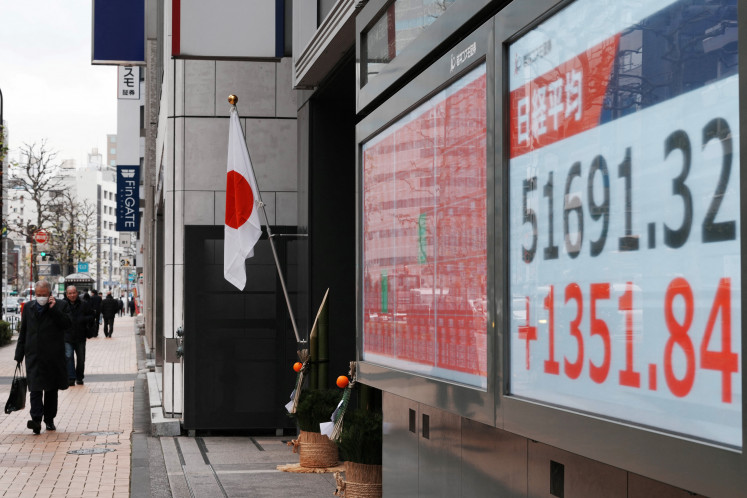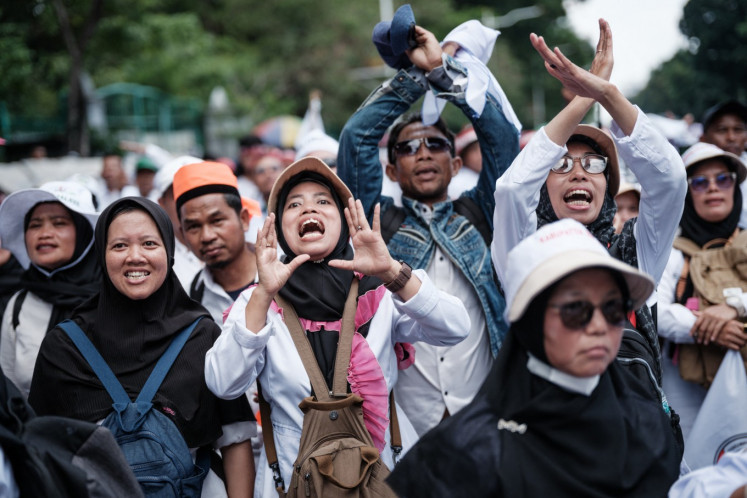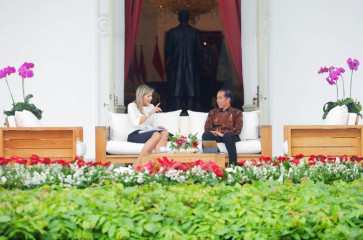Popular Reads
Top Results
Can't find what you're looking for?
View all search resultsPopular Reads
Top Results
Can't find what you're looking for?
View all search resultsIndonesian-Dutch ties: Make peace with history
Change text size
Gift Premium Articles
to Anyone
 The queen and I: President Joko "Jokowi" Widodo receives Queen Maxima of the Netherlands in her capacity as United Nations secretary-general special advocate for financial inclusion in February 2015. Dutch King Willem-Alexander and Queen Maxima are visiting Indonesia and are scheduled to meet the President on Tuesday. (JP/Seto Wardhana)
The queen and I: President Joko "Jokowi" Widodo receives Queen Maxima of the Netherlands in her capacity as United Nations secretary-general special advocate for financial inclusion in February 2015. Dutch King Willem-Alexander and Queen Maxima are visiting Indonesia and are scheduled to meet the President on Tuesday. (JP/Seto Wardhana)
W
e welcome the king and queen of the Netherlands who are visiting Indonesia from Monday to Friday. Their entourage includes four Cabinet ministers and 130 businesspeople. Clearly, the state visit also aims to promote business relationships between the two countries. There are, however, individuals in Indonesia who oppose the state visit, demanding that the Netherlands should first recognize Aug. 17, 1945, as the date Indonesia proclaimed its independence from its colonial rule.
The Dutch believe that transfer of sovereignty took place on Dec. 27, 1949. Given the proclamation of independence, Indonesians view the Dutch military assault on a number of regions in Java in 1947 and 1948 as military aggression, while the Dutch consider them police actions on their own territory.
As things stand it would be impossible to make the Netherlands acknowledge that Indonesia became independent on Aug. 17, 1945, as urged by Indonesians and Dutch writers including the historian Marjolein van Pagee, who wrote in this newspaper on March 9 (“Beware of Dutch king: Colonial wolf in sheep’s clothing”). Acknowledging Indonesia’s independence in 1945 means the Netherlands would agree that the actions by its military forces in Indonesia in 1945-1949 were war crimes.
Read also: King Willem-Alexander, please recognize Indonesia’s Independence Day
As we are now equal nations, let the two nations write their own histories regarding the period of 1945 and 1949, differently, and even in contradiction. This will not upset the bilateral relationship that has been going on well for decades. For a number of cases in history that can be settled in court, for instance, it would be best to get them done individually or in groups.
In 2011 and 2012, acts of violence by Dutch military personnel, recorded from 1945 to 1949 in Rawagede (now known as Balongsari) in West Java and in South Sulawesi were brought to trial in the Netherlands. The court forced the Dutch government to make an apology and compensate victims’ families living in Indonesia in the two separate incidents. The latter is known as the Westerling massacre where the troops of officer Raymond Westerling killed tens of thousands of people.
However, bear in mind that the court still regarded those casualties as Dutch nationals since the events occurred before Dec. 27, 1949. Cases are now reportedly being taken to court in The Hague by family members of Andi Abubakar Lambogo, one of those beheaded by Westerling’s troop on March 13, 1947, in South Sulawesi.

















